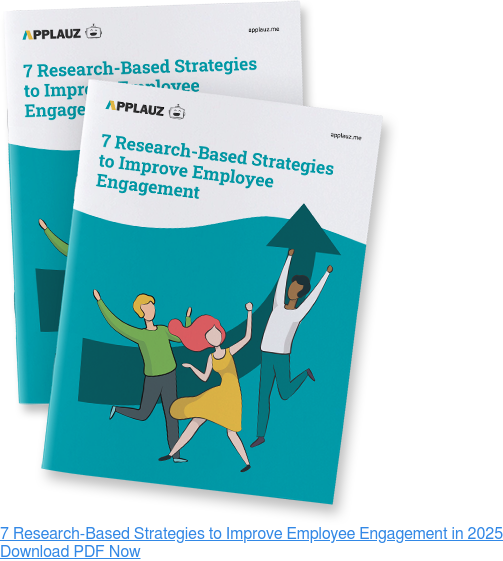Think about a time you purchased a product online or browsed online for a restaurant to try...Did customer reviews play a role in your final decision on which product to pick or restaurant to try?
If you're like the majority of modern consumers, the answer is probably a definite yes.
In the digital era, we have the benefit of crowdsourced information to help us with all our consumption decisions—"Shopping" for a job is no different. When considering a job offer or simply browsing job postings, the majority of prospective employees will seek out company reviews, on websites such as Glassdoor, as part of their decision-making process.
In fact, Small Business Trends (2017) shows that precisely 83% of job seekers use reviews to support their decisions on which companies to apply to.
 Improving Your Company's Glassdoor Score
Improving Your Company's Glassdoor Score
First off, know that boosting your Glassdoor reviews and scores can take time, especially if your score is low, to begin with. However, it's not impossible. Using the following tips, you can hone in on the root cause of the negative complaints, and systematically tackle the issues one by one.
A critical key to success: remain positive and optimistic throughout this process.
Negative reviews can sometimes feel highly personal, discouraging, and demoralizing to HR, managers, and executives. But every negative review should be framed as valuable data. In short, a window into your employee's experience. Issues you never knew existed may begin to surface if you keep an eye out for patterns in reviews.
Let’s begin drilling down on each step.
1. Glassdoor review audit
The first step in optimizing your Glassdoor profile is to conduct a thorough audit of your current Glassdoor profile and associated employee reviews.

Essentially you want to quantify and qualify just how bad (or good) the reviews are. It also will help to keep formal track of your observations by documenting the results on a spreadsheet.
A few important key findings and metrics to keep in mind when auditing your Glassdoor profile:
- Total score (for example 3.5 stars out of 5)
- The total number of reviews
- Total reviews per month (over the past year)
- Number of ratings by current employees
- Number of ratings by former employees
- The average star rating for current employees
- The average star rating for former employees
- Number of complaints by type
- For example, the number of complaints about salary, management, etc
After you extract these key insights, you will be able to paint a clear picture of who exactly is contributing to the negative reviews about your company and why.
At this point, you will be in a much better position to tackle the root cause of the problem to resolve the issue for future employees, hopefully.
For example, if you notice that 90% of former employees write negative reviews and they all complain about poor management, you know there might be an underlying communication issue between management and employees at play.
2. Ask current employees to review your company
Negative experiences motivate us to make a public complaint; it's human nature. On the other hand, people who have positive experiences are not motivated to make the same public remarks unless the client experience goes above and beyond. So keep in mind, reviews of any kind tend to represent polarized opinions—it's either great or awful.
 As a result, it's crucial to ensure your Glassdoor page isn't only receiving reviews from disgruntled ex-employees. Because regardless of how representative reviews are of the actual truth, job seekers perceive reviews as a reflection of the truth and ultimately use them to inform their decisions.
As a result, it's crucial to ensure your Glassdoor page isn't only receiving reviews from disgruntled ex-employees. Because regardless of how representative reviews are of the actual truth, job seekers perceive reviews as a reflection of the truth and ultimately use them to inform their decisions.
So, to avoid this issue, you must periodically campaign current employees to fill out Glassdoor reviews as well.
Current employees, especially loyal ones with boasting long tenures, will be more likely to leave positive and optimistic reviews. Ultimately, you are aiming to ensure the sample of reviews accurately represents the opinions of your current workforce, not just individuals who no longer work for you.
3. Respond with tact to all reviews
 Responding to every review—even positive ones—is an excellent way to demonstrate that your organization is taking a proactive role when it comes to negative employee feedback.
Responding to every review—even positive ones—is an excellent way to demonstrate that your organization is taking a proactive role when it comes to negative employee feedback.
You may be worried about publicly responding to negative reviews, as it can appear to bring attention to the review. However, this is not the case. A positive, sincere, and personalized public response can make a world of difference for potential job applicants.
That said, responding to reviews won't necessarily improve future reviews. However, it will undoubtedly send a positive message to prospective employees who are browsing your Glassdoor profile.
4. Distill key insights from reviews
As mentioned, employee reviews as essentially free data, valuable insights into your employee's experience.
 At this point, the previous audit exercise will serve you well. You can further drill down to quantify and qualify your employee's exact pain points. In short, put on your analyst hat and track patterns and trends in employee complaints and quantify them by assigning them a value.
At this point, the previous audit exercise will serve you well. You can further drill down to quantify and qualify your employee's exact pain points. In short, put on your analyst hat and track patterns and trends in employee complaints and quantify them by assigning them a value.
Over time, you may notice certain pain points consistently cropping up. For example, the issue of "low salary" as a "con" has come up in employee reviews X time over the past quarter. You can create pain point "buckets" and keep track of how often each overarching issue surfaces on a monthly or quarterly basis.
These key insights will serve as powerful insights to further inform your employee engagement strategy as well.
This brings us to our next point...
5. Incorporate insights into Employee Engagement Strategy
You’re reading this because your ultimate goal is to improve your Glassdoor reviews, which won’t be possible unless you apply the insights derived from reviews towards improving your employee’s experience. In short, feedback should help your organization improve, grow, and evolve in a positive direction.
 For example, if you noted repeat complaints about “low salary,” you should consider including “improve salary offering” as a key initiative in building your Employee Engagement Program.
For example, if you noted repeat complaints about “low salary,” you should consider including “improve salary offering” as a key initiative in building your Employee Engagement Program.
In short, putting active effort into tackling the issue will translate into fewer complaints going forward. On the other hand, if you make no effort to solve the problem, it will persist, and so will the negative reviews.
Keep in mind; this is a long-term strategy. No one expects you to solve high-level issues overnight. However, when you set an intention and target specific pain points by incorporating solutions into your Employee Engagement Strategy, you will surely see long-term results.
6. Make employee value proposition (EVP) a strategic priority
The cost of disengaged employees is high. If you want to take an active and preventative approach, make your employee value proposition (EVP) a strategic priority for your HR department.
 EVP represents everything of value that an employer provides to its employees—pay, benefits, training, career development opportunities, and so on—and it is then sold and marketed to the potential and current employees. The goal is to retain existing employees and attract new talent.
EVP represents everything of value that an employer provides to its employees—pay, benefits, training, career development opportunities, and so on—and it is then sold and marketed to the potential and current employees. The goal is to retain existing employees and attract new talent.
EVP also includes a mission statement or employee value proposition; this is a type of inspirational elevator pitch intended to articulate the organization’s high goals and emotionally unify the workforce.
Final Thoughts
Negative Glassdoor reviews severely impact the perception of prospective employees. After all, consumers rely heavily on reviews to inform their decisions about all types of products. Where we work is no different.
The main takeaway should be; despite negative reviews and a low score, always remain positive. Rather than feeling defeated, approach employee feedback as valuable data, an opportunity for your organization to learn and improve.
Approaching negative Glassdoor reviews from this proactive and optimistic mindset will set the proper intention—in which the ultimate goal is to tackle and treat the underlying problem—instead of hurriedly masking it with partial solutions. In the long run, this is the only approach that will truly improve Glassdoor reviews in an enduring way.





